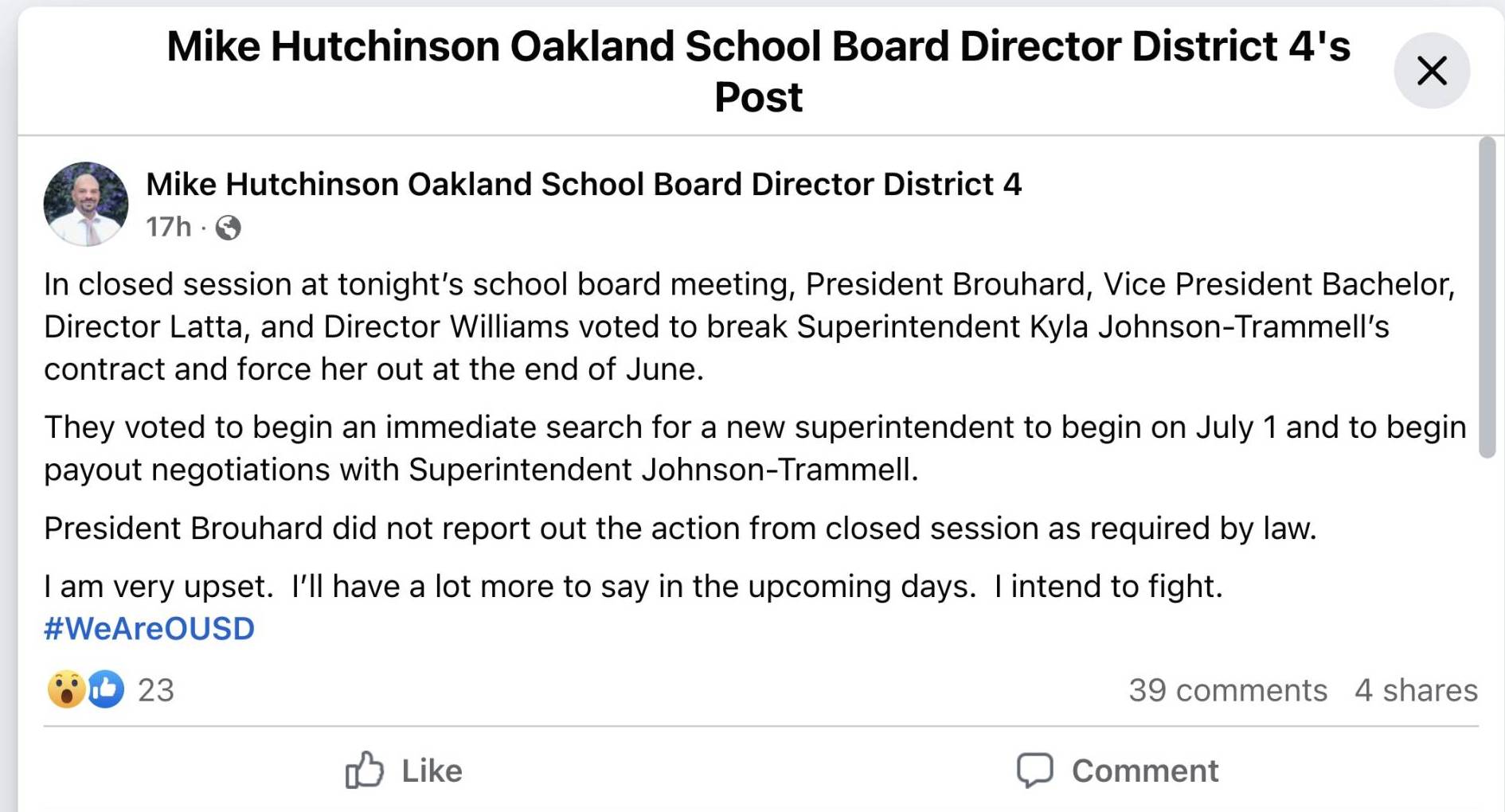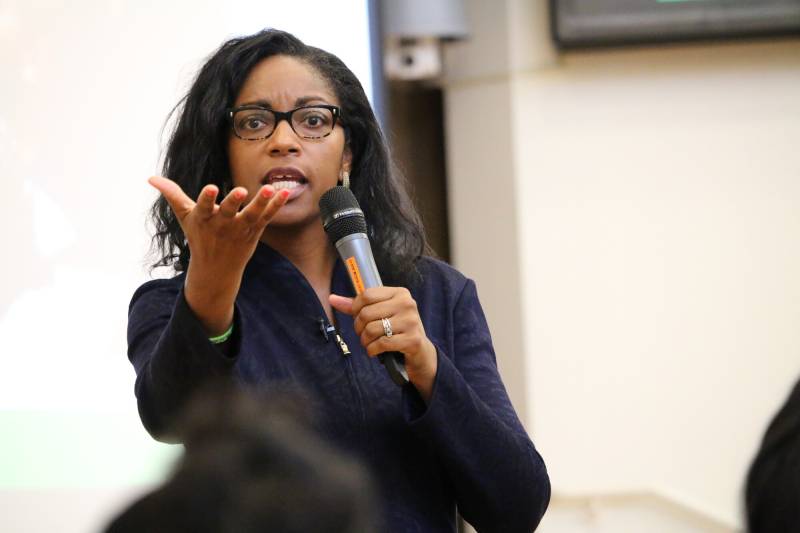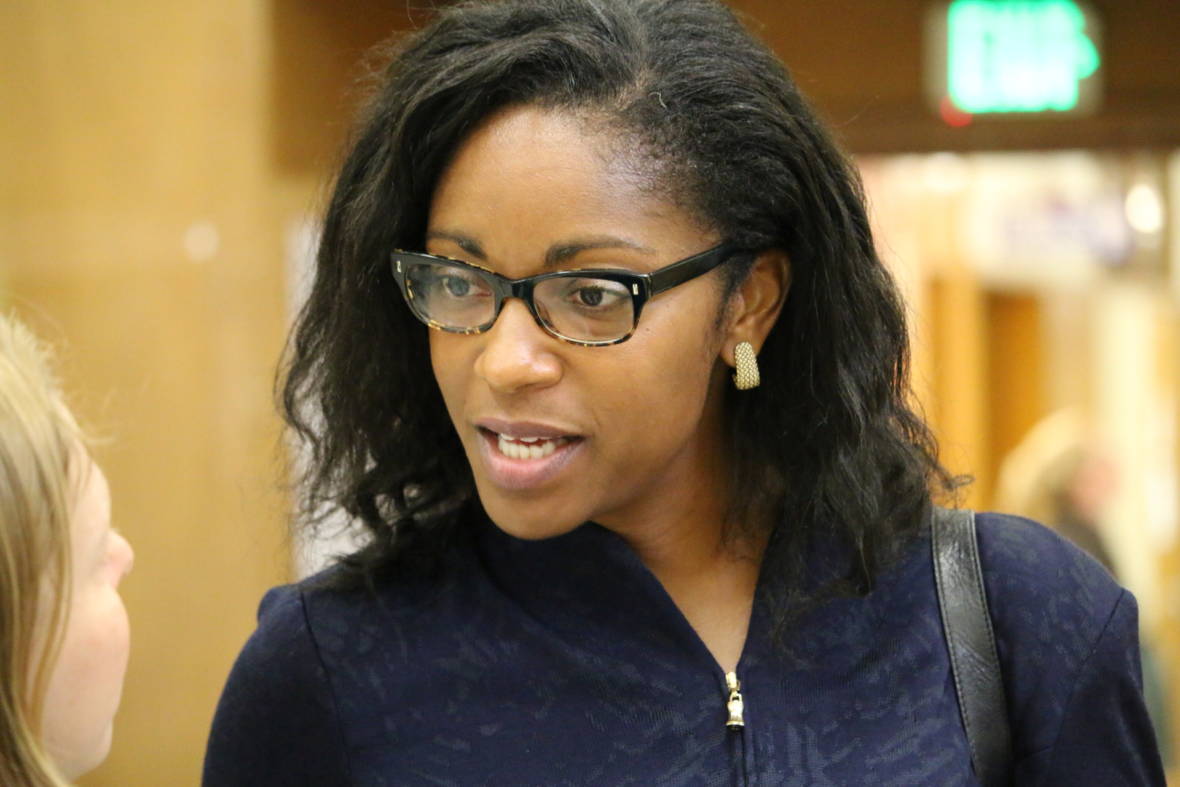Oakland’s school district leadership looks headed for a shake up — though it’s unclear whether the move is par for the course or a backdoor effort to push the longtime superintendent out early.
After Oakland Unified’s school board discussed Superintendent Kyla Johnson-Trammell’s transition out of the district during a closed-door meeting on Wednesday night, President Jennifer Brouhard reported to the public that no action had been taken.
However, Board member Mike Hutchinson quickly posted on social media that the longtime superintendent was being ousted. Hutchinson said the board took two votes related to the matter: one to begin an immediate search for a new superintendent and another to start negotiations on a payout for Johnson-Trammell, who did not respond to request for comment.

“Last night, [the board] did not vote to give the Superintendent a 90-day notice, but they did take the other actions that clearly show it is violating her contract,” Hutchinson told KQED. “It’s a slight detail that I don’t think matters, and I am very disappointed that as of now, it has still not been reported out like it was supposed to be.”
He said that the possibility of hiring a new superintendent who would begin this summer was first floated in a closed-door meeting two weeks ago. That talk wasn’t agendized, but Hutchinson said the board members took a straw vote.


